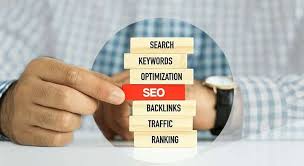The Power of Content Marketing and SEO
In the digital age, content marketing and search engine optimisation (SEO) have become essential tools for businesses looking to enhance their online presence. While they serve distinct purposes, when combined effectively, they can significantly boost a brand’s visibility and engagement.
Content Marketing: Crafting Compelling Narratives
Content marketing revolves around creating and distributing valuable, relevant content to attract and retain a target audience. Whether it’s blog posts, videos, infographics, or social media updates, compelling content can establish a brand as an authority in its industry and build trust with consumers.
By focusing on storytelling and addressing the needs and interests of their audience, businesses can drive engagement, increase brand awareness, and ultimately drive conversions. Quality content not only educates and entertains but also encourages sharing and interaction across various digital platforms.
SEO: Enhancing Visibility and Reach
SEO is the practice of optimising a website to improve its ranking in search engine results pages (SERPs). By incorporating relevant keywords, creating high-quality backlinks, improving site speed, and enhancing user experience, businesses can increase their visibility to potential customers searching for related products or services.
Effective SEO strategies not only drive organic traffic to a website but also enhance its credibility in the eyes of search engines like Google. By aligning content with popular search queries and ensuring technical aspects are well-optimised, businesses can improve their chances of appearing at the top of search results.
The Synergy Between Content Marketing and SEO
When content marketing is combined with SEO best practices, the results can be truly transformative. By creating high-quality content that is both user-friendly and search engine-friendly, businesses can attract more organic traffic while providing value to their audience.
Content that is optimised for relevant keywords can rank higher in search results, increasing visibility and driving targeted traffic to the website. Furthermore, by leveraging SEO insights to inform content creation strategies, businesses can ensure their messaging resonates with both humans and search algorithms.
In Conclusion
Content marketing and SEO are powerful tools that complement each other in the digital landscape. By crafting compelling narratives that resonate with audiences while adhering to SEO best practices that enhance visibility online, businesses can establish a strong online presence, drive engagement, and ultimately achieve their marketing goals.
Essential FAQs: Understanding Content Marketing and SEO for Enhanced Online Success
- What is content marketing and how does it differ from traditional marketing?
- Why is SEO important for businesses looking to improve their online visibility?
- How can businesses measure the success of their content marketing efforts?
- What are some common SEO strategies that can help improve a website’s ranking?
- How does creating high-quality content contribute to both SEO and user engagement?
- What role does social media play in a successful content marketing and SEO strategy?
What is content marketing and how does it differ from traditional marketing?
Content marketing is a strategic approach to creating and distributing valuable content to attract and engage a target audience. Unlike traditional marketing, which often focuses on direct promotion of products or services, content marketing aims to provide relevant and informative content that addresses the needs and interests of consumers. By offering valuable insights, educational resources, or entertaining narratives, businesses can build trust with their audience and establish themselves as industry authorities. Content marketing prioritises building relationships with customers through storytelling and value-driven communication, rather than relying solely on promotional messaging.
Why is SEO important for businesses looking to improve their online visibility?
In the realm of digital marketing, the importance of SEO for businesses seeking to enhance their online visibility cannot be overstated. SEO serves as the cornerstone of online visibility by ensuring that a business’s website ranks higher in search engine results pages (SERPs), making it more likely to be discovered by potential customers. By strategically incorporating relevant keywords, refining website structure and content, and building authoritative backlinks, businesses can not only attract organic traffic but also establish credibility and trust with search engines like Google. In essence, SEO acts as a powerful catalyst for driving targeted traffic to a website, increasing brand awareness, and ultimately boosting overall online visibility and competitiveness in the digital landscape.
How can businesses measure the success of their content marketing efforts?
One common question in the realm of content marketing and SEO is: “How can businesses measure the success of their content marketing efforts?” The effectiveness of content marketing strategies can be evaluated through various metrics such as website traffic, engagement rates, conversion rates, and social media interactions. By analysing key performance indicators (KPIs) related to these metrics, businesses can gain insights into the impact of their content on audience behaviour and brand visibility. Additionally, tools like Google Analytics provide valuable data on user interactions, allowing businesses to track the performance of individual pieces of content and adjust their strategies accordingly to achieve their desired outcomes.
What are some common SEO strategies that can help improve a website’s ranking?
When considering ways to enhance a website’s ranking, several common SEO strategies can play a crucial role. Implementing relevant keywords strategically throughout the content, optimising meta tags and descriptions, creating high-quality backlinks from reputable sources, improving website loading speed, ensuring mobile responsiveness, and regularly updating and refreshing content are all effective techniques. By focusing on these key strategies, businesses can improve their website’s visibility in search engine results pages (SERPs) and attract more organic traffic, ultimately boosting their online presence and achieving better rankings.
How does creating high-quality content contribute to both SEO and user engagement?
Creating high-quality content plays a pivotal role in boosting both SEO performance and user engagement. In the realm of search engine optimisation (SEO), quality content that is informative, relevant, and well-structured tends to perform better in search engine rankings. Search engines like Google value content that provides value to users, answers their queries effectively, and keeps them engaged. By incorporating targeted keywords naturally within high-quality content, businesses can improve their website’s visibility in search results and attract organic traffic. Moreover, when users find valuable and engaging content that meets their needs, they are more likely to spend time on the website, interact with the content, share it with others, and potentially convert into customers. Thus, creating high-quality content not only enhances SEO by improving rankings but also fosters meaningful user engagement by offering valuable information and a positive user experience.
What role does social media play in a successful content marketing and SEO strategy?
Social media plays a crucial role in a successful content marketing and SEO strategy by acting as a powerful amplifier for content distribution and engagement. By sharing valuable and relevant content across social platforms, businesses can reach a wider audience, drive traffic to their website, and enhance brand visibility. Social media also fosters interactions with followers, encouraging discussions, feedback, and sharing of content, which can boost organic reach and improve search engine rankings. Additionally, social signals such as likes, shares, and comments can indicate content relevance and quality to search engines, potentially impacting SEO performance. Integrating social media into content marketing efforts not only extends the reach of the content but also strengthens the overall online presence of a brand.




